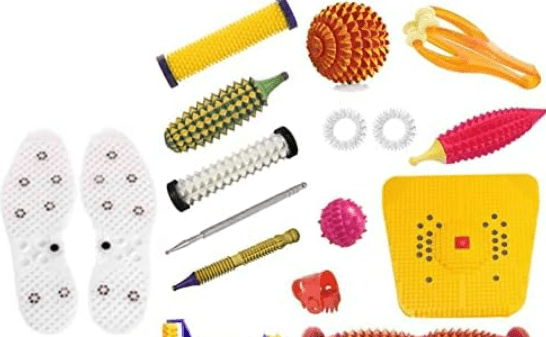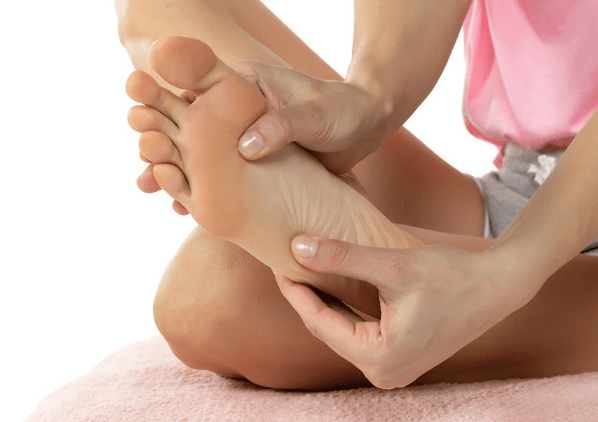Acupuncture for Diabetes: Studies have suggested that acupuncture may be beneficial for individuals with diabetes by improving blood sugar levels, alleviating the symptoms of neuropathy – a complication of diabetes – and more.
According to the Centers for Disease Control and Prevention (CDC), an estimated 30.3 million people in the United States, or 9.4 percent of the population, are living with diabetes.
In modern-day China, people often use acupuncture to treat diabetes. Research has shown that acupuncture can
- improve blood glucose management
- help with weight loss
- protect pancreatic islet function, which is responsible for insulin production
- improve insulin resistance
- adjust the balance of hormones that affect diabetes, for example, melatonin, insulin, glucocorticoids, and epinephrine
In recent years, scientists have been exploring the potential impact of acupuncture on the biological mechanisms of diabetes and prediabetes in order to develop an effective treatment.
Benefits of Acupuncture for Diabetes
A number of studies have suggested that acupuncture may provide benefits for individuals with diabetes.
1. Glucose and insulin level Adjustments
In 2018, researchers in China published findings that demonstrated how specific acupuncture points can help improve the symptoms of diabetes in rats.

They found that within 3 weeks, the rats that received electroacupuncture had:
- lower glucose levels
- increased insulin levels
- improved glucose tolerance
2. Insulin sensitivity and resistance
A 2016 literature review of human and animal studies in the journal Acupuncture in Medicine investigated the effectiveness of acupuncture.
- was a valid treatment for insulin resistance
- and could be suitable as a future treatment for insulin sensitivity
According to the study’s findings, applying low-frequency, low-intensity electroacupuncture may help to increase insulin sensitivity and lessen insulin resistance. The researchers recommended using electroacupuncture in conjunction with other therapies or on its own. Chinese herbal remedies and dietary changes are examples of potential alternative medicines.
3. Acupuncture and metformin
In 2015, an article published in Acupuncture in Medicine reviewed studies using rats in which scientists combined electroacupuncture with the anti-diabetic medication, metformin.
They were looking for better glucose-lowering responses and greater insulin sensitivity.
The team found that, compared with metformin alone, this combination offered:
- better glucose-lowering effects
- greater insulin sensitivity
None of the studies appear to address the processes and mechanisms that may explain how exactly acupuncture works to manage diabetes symptoms.
Techniques
The methods used in acupuncture to treat diabetes may differ from those used to alleviate pain. There seems to be research on only three of the many types and procedures used in medical acupuncture to treat diabetes.
1. Wrist-Ankle
Wrist-ankle treatment is a form of acupuncture that involves deep needle stimulation of the ankle and wrist nerves.

A 2014 study that was published in the journal Evidence-Based Complementary and Alternative Medicine suggested that wrist-ankle acupuncture could be a secure and useful method of managing pain, particularly diabetic peripheral neuritis.
However, the scientists added that there is not yet enough evidence to confirm that this method is safe and effective.
2. Electroacupuncture
The most popular form of acupuncture used by practitioners to treat diabetes is electroacupuncture. Every acupuncture point is treated by the acupuncturist inserting two needles and sending an electrical impulse from one to the other.
This treatment appears to be effective in:
- treating pain from diabetic neuropathy
- managing blood glucose levels
3. Herbal acupuncture
Herbal acupuncture involves injecting herbs into acupuncture points. This is a modern technique.
A review published in the journal Experimental and Therapeutic Medicine trusted Source suggests that herbal acupuncture may benefit type 2 diabetics by helping to keep their blood glucose levels stable.
Risks of Acupuncture

Anyone considering acupuncture should be aware of some general side effects. These include the possibility of:
- soreness
- bleeding
- bruising
Before having acupuncture, a person should check that:
- The needles are sterile and for single use only.
- The acupuncturist has a license to practice. Many traditional Chinese medical doctors are also MDs in the U.S., practicing both approaches to health but people should always check their credentials.
- It is safe for them to have an acupuncture treatment. Sometimes, a doctor may discourage a person taking blood thinners or has a blood clotting disease from having acupuncture.
Final Words
Acupuncture for diabetes can be a safe and effective treatment if a licensed and experienced practitioner performs it. It has become more widely accepted in Western medicine over the past 20 years.
Acupuncture offers an accessible, practical method for the treatment of Type 2 Diabetes. While researchers are still discovering how it works, current literature indicates that along with a healthy diet and exercise, acupuncture could substantially increase the quality of life of patients who do live with diabetes. Providing care that is practically side-effect free, while reducing the frequency of lancets sticks and medication side-effects, offers patients another treatment option for their Healthcare needs.





One thought on “Does acupuncture for diabetes work?”